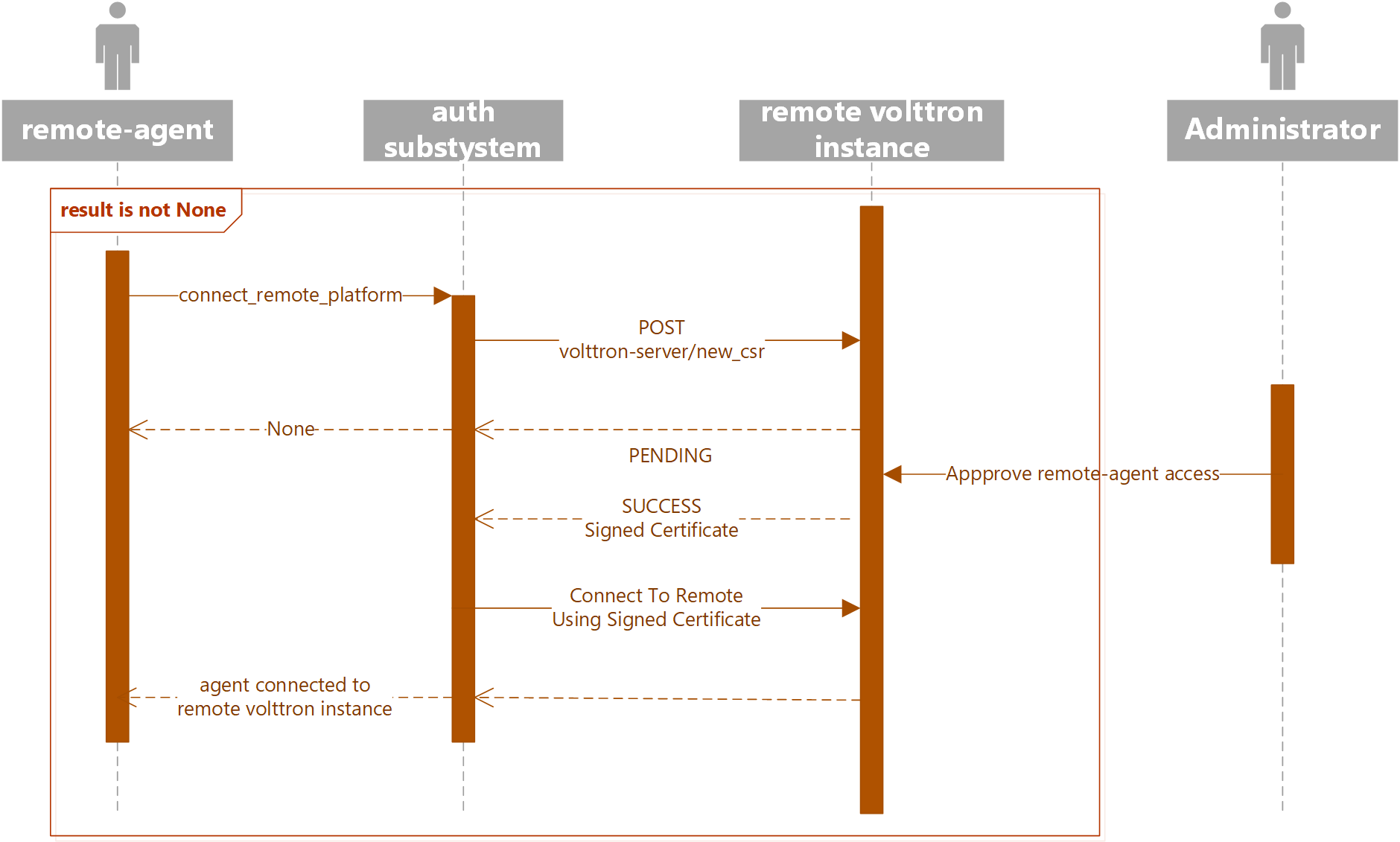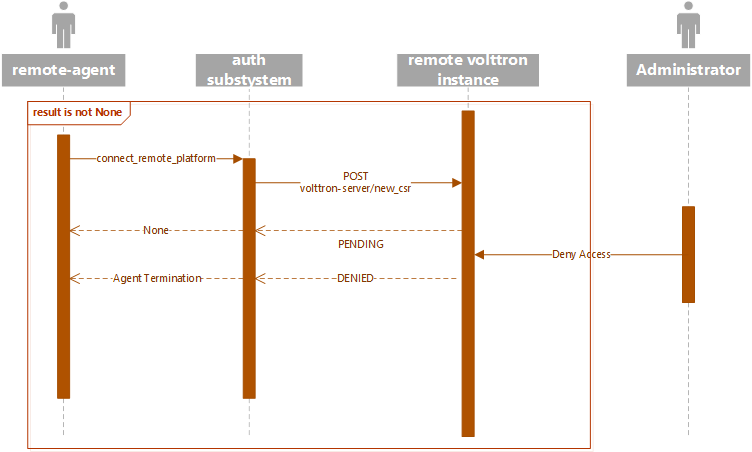Agent communication to Remote RabbitMQ instance
Communication between two RabbitMQ based VOLTTRON instances must be done using SSL certificate based authentication. Non SSL based authentication will not be supported for communication to remote RabbitMQ based VOLTTRON instances. A VOLTTORN instance that wants to communicate with a remote instance should first request a SSL certificate that is signed by the remote instance. To facilitate this process there will be a web based server API for requesting, listing, approving and denying certificate requests. This api will be exposed via the PlatformWebService and will be available to any RabbitMQ based VOLTTRON instance with SSL enabled. This API will be tested and used in the following agents:
ForwarderAgent
DataPuller
VolttronCentralPlatform
For the following document we will assume we have two instances a local-instance and remote-volttron-instance. The remote-volttron-instance will be configured to allow certificate requests to be sent to it from the local-instance. A remote-agent running in local-instance will attempt to establish a connection to the remote-volttron-instance
Configuration
Both volttron-server and volttron-client must be configured for RabbitMQ message bus with SSL using the step described at Installing Volttron.
In addition the remote-volttron-instance configuration file must have a https bind-web-address specified in the instance config file. Below is an example config file with bind-web-address. Restart volttron after editing the config file
[volttron]
message-bus = rmq
vip-address = tcp://127.0.0.1:22916
bind-web-address = https://volttron1:8443
instance-name = volttron1
By default the bind-web-address parameter will use the PlatformWebService agent’s certificate and private key. Both private and public key are necessary in order to bind the port to the socket for incoming connections. This key pair is auto generated for RabbitMQ based VOLTTRON at the time of platform startup. Users can provide a different certificate and private key to be used for the bind-web-address by specifying web-ssl-cert and web-ssl-key in the config file. Below is an example config file with the additional entries
[volttron]
message-bus = rmq
vip-address = tcp://127.0.0.1:22916
bind-web-address = https://volttron1:8443
instance-name = volttron1
web-ssl-cert = /path/to/cert/cert.pem
web-ssl-key = /path/to/cert/key.pem
Note
The /etc/hosts file should be modified in order for the dns name to be used for the bound address.
remote-agent on local-instance
The auth subsystem of the volttron architecture is how a remote-agent on local instance will connect to the remote volttron instance.
The following is a code snippet from the remote-agent to connect to the remote volttron instance.
...
value = self.vip.auth.connect_remote_platform(address)
The above function call will return an agent that connects to the remote instance only after the request is approved by an administrator of the remote instance. It is up to the agent to repeat calling connect_remote_platform periodically until an agent object is obtained.
Approving a CSR Request
The following diagram shows the sequence of events when an access request is approved by the administrator of remote volttron instance. In this case, the volttron-client agent will get a Agent object that is connected to the remote instance. The diagram shows the client agent repeating the call to connect_remote_platform until the return value is not None.

Denying a CSR Request
The following diagram shows the sequence of events when an access request is denied by the administrator. The client agent repeats the call to connect_remote_platform until the return value is not None. When the remote instance’s administrator denies a access request, the auth subsystem will raise an alert and shutdown the agent.

Follow walk-through in Multi-Platform Multi-Bus Walk-through for setting up different combinations of multi-bus multi-platform setup using CSR.